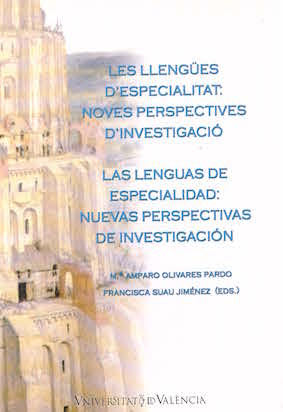Prudence, precision, and politeness: hedges in academic writing
DOI:
https://doi.org/10.7203/qfilologia.10.5083Paraules clau:
atenuadors discursius, escriptura acadèmica, gènres acadèmics Resum
Resum
L'èxit en la comunicació acadèmica escrita radica que l'autor ha de persuadir al lector que les seves afirmacions sobre el coneixement són correctes. A causa que aquestes afirmacions poden ser rebutjades i a la incertesa de gran part del coneixement acadèmic, els autors de vegades necessiten presentar les seves propostes amb cautela, en la forma adequada i amb modèstia, per així satisfer les expectatives d'exactitud d'una comunitat escèptica per naturalesa. En aquest sentit, els hedges o atenuadors discursius són essencials en el llenguatge acadèmic, ja que expressen possibilitat abans que certesa i deferència abans que excessiva confiança. Aquest article explora el concepte de hedging i analitza les seves diferents varietats, freqüències i funcions en un corpus d'articles de recerca.
 Descàrregues
Descàrregues
Descàrregues
Publicades
Com citar
-
Resum1048
-
PDF (Español)1162
Número
Secció
Llicència
 Este obra está bajo una licencia de Creative Commons Reconocimiento-NoComercial-SinObraDerivada 4.0 Internacional.
Este obra está bajo una licencia de Creative Commons Reconocimiento-NoComercial-SinObraDerivada 4.0 Internacional.
Tots els documents inclosos a OJS són d'accés lliure i propietat dels seus autors i/o institucions editores, i per tant, qualsevol acte de reproducció, comercialització, comunicació pública o transformació total o parcial necessita el consentiment exprés i escrit d'aquests.
Authors who publish with this journal agree to the following terms:
- Authors retain copyright and grant the journal right of first publication with the work simultaneously licensed under a Creative Commons Attribution License that allows others to share the work with an acknowledgement of the work's authorship and initial publication in this journal.
- Authors are able to enter into separate, additional contractual arrangements for the non-exclusive distribution of the journal's published version of the work (e.g., post it to an institutional repository or publish it in a book), with an acknowledgement of its initial publication in this journal.
- Authors are permitted and encouraged to post their work online (e.g., in institutional repositories or on their website) prior to and during the submission process, as it can lead to productive exchanges, as well as earlier and greater citation of published work (See The Effect of Open Access).



